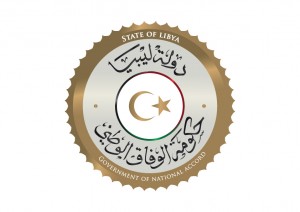By Sami Zaptia.
London, 17 April 2017:
A leaked list of proposed diplomatic appointments by the Serraj-led Presidency Council /Government of National Accord (PC/GNA) has caused controversy on different levels. The leaking of the list has put the PC/GNA in a difficult position as it faces pressures to adjust the list internally and externally.
A diplomatic post, offering generous pay and benefits in hard currency, is a very sought after position at any time – let alone in Libya’s current climate of insecurity, power cuts, inflation, shortages etc. It’s a dream ticket that is much competed for and much used as a political bargaining tool.
The list, which a GNA insider has confirmed to be genuine, contains 83 diplomats of whom 76 are ambassadors and 7 are Charges D’Affairs.
Well-placed sources have confirmed that the list was initially drawn up by the GNA’s Foreign Ministry based on meritocracy at the end of 2016. However, it was constantly changed as various geographical, tribal and political powers came to play. The person in the Foreign Ministry in charge of the list came under constant pressure and even received threats – including from incumbent ambassadors.
Both the GNA’s own Foreign Ministry and the House of Representatives have been angered by the drawing of the list, believe that the PC/GNA has encroached on their powers and authority, sources have said.
Many on the list are unknown to the general public or are Foreign Ministry employees. However, nine stand out. Former Prime Minister Ali Zeidan’s son, Zeidan Ali Zeidan has been nominated to be ambassador in Mali. If accurate, the nomination has been criticized for been a pure case of nepotism.
Wafa Bughaigies retains her post in Washington DC. ‘‘She has good relations with both Faiez Serraj and Ahmed Maetig, with whom she is in direct contact. The Americans want her too’’ a GNA source told this publication.
Former head of the General National Congress (GNC), Guima Attaiga has been proposed for the much-sought-after London post. ‘‘It is clear that his nomination was to win over civil society and civil (non-military) political stream in general in opposition to the Islamist stream’’, the GNA source said.
Ahmed Safar was retained as ambassador, moving from Rome to Slovakia, ‘‘where he used to be a student. He has good relations with Deputy PC President Ahmed Maetig, so he was moved so as not to attract opposition’’, the source added.
GNC member for Ain Zara (Tripoli) and former Libyan Businessmen Council chairman Naser Benafa has been proposed for the Moscow post. ‘‘He is a military officer who graduated from Russia in the 1980’s. He has a lot of Russian support. They even supported him during the Skhirat negotiations to head the PC instead of Serraj’’.
‘‘The PC is in a difficult position over the list. Don’t be surprised if they issue a statement denying it. It could also be that they leaked it to test public opinion. Many names will be unacceptable to the public, forced on the list by some HoR members as a bargaining tool in return for approving the PC’s GNA’’.
Marwan Busreweel, nominated for Germany, was a former head of the NGO department at the Gwell Foreign Ministry and ‘‘a friend of Ahmed Maetig’’, the source said.
Zuhair Al-Zwawy (Milan), Taher Ben Taher (Algiers) and Omar Tarhuni (Rome) are all considered Maetig supporters. Lutfi Al-Mughrabi (Paris) is a Deputy Foreign Minister. Ala Alwafati (Dubai) is a member of the Libyan Businessmen Council and a Serraj ally.
One of the few females nominated as ambassador, Najat Al-Furjani’s, received much criticism for being nominated to the tiny African island state of Sao Tome and Principe. Many Libyans felt it was simply corruption by the ruling elite and that such a small island should not be extended the expense at such a time of a full diplomatic post.










